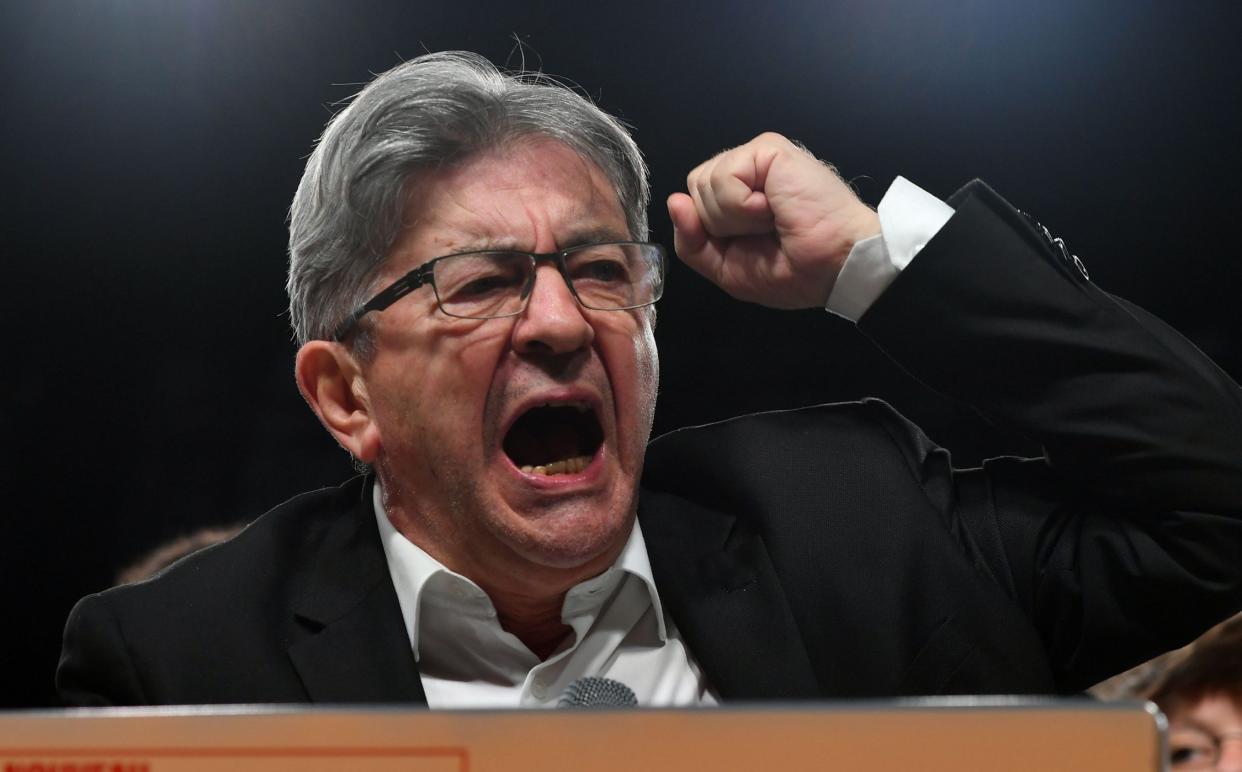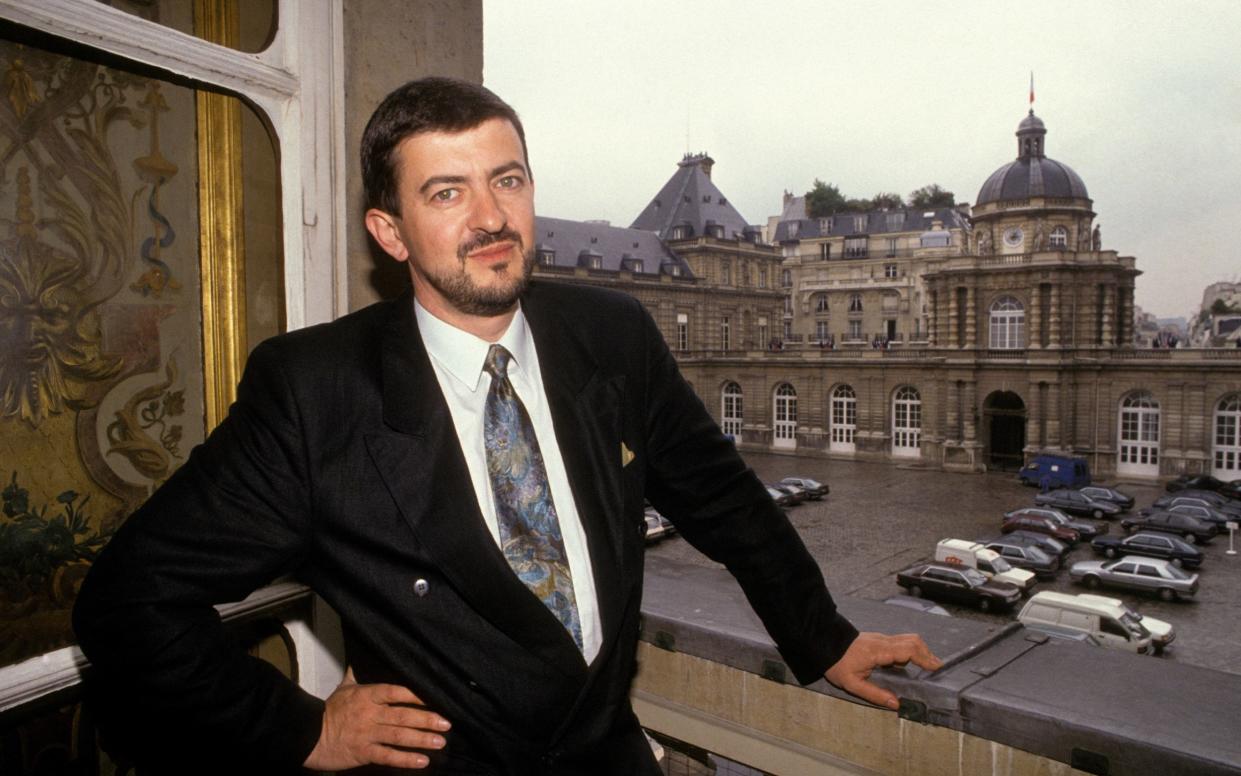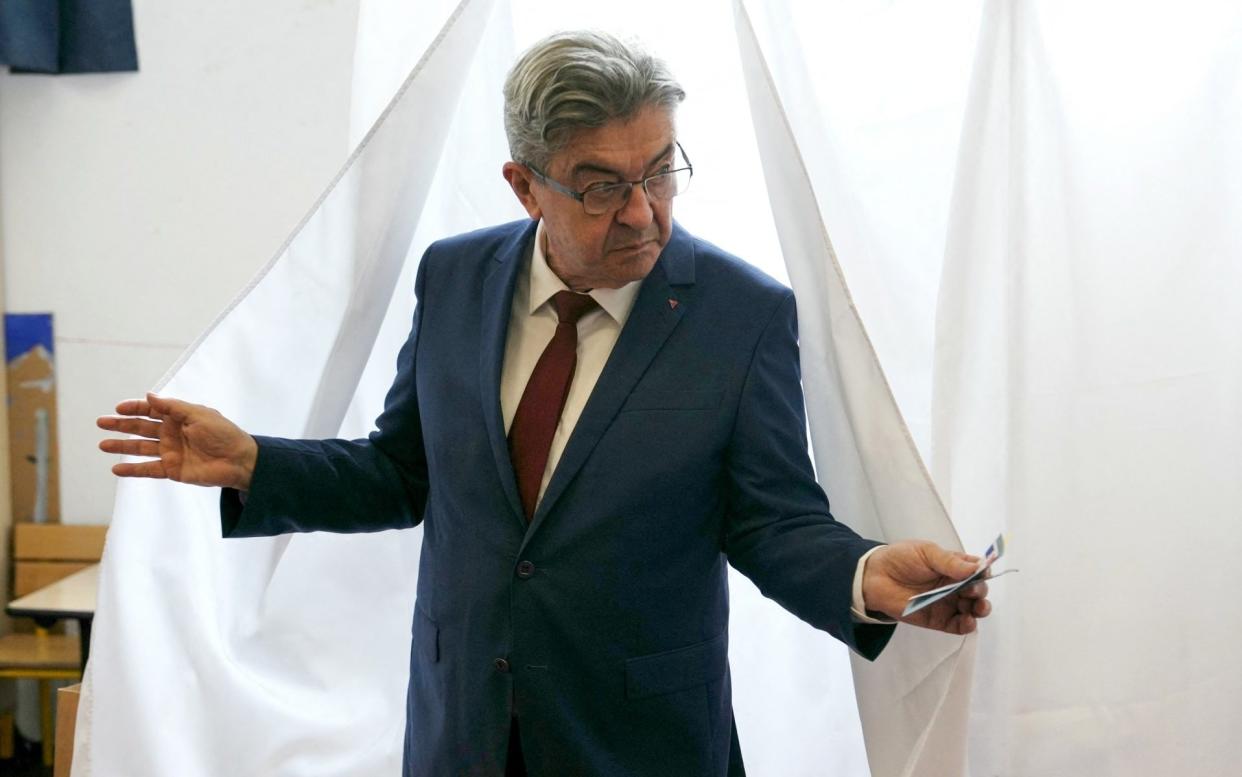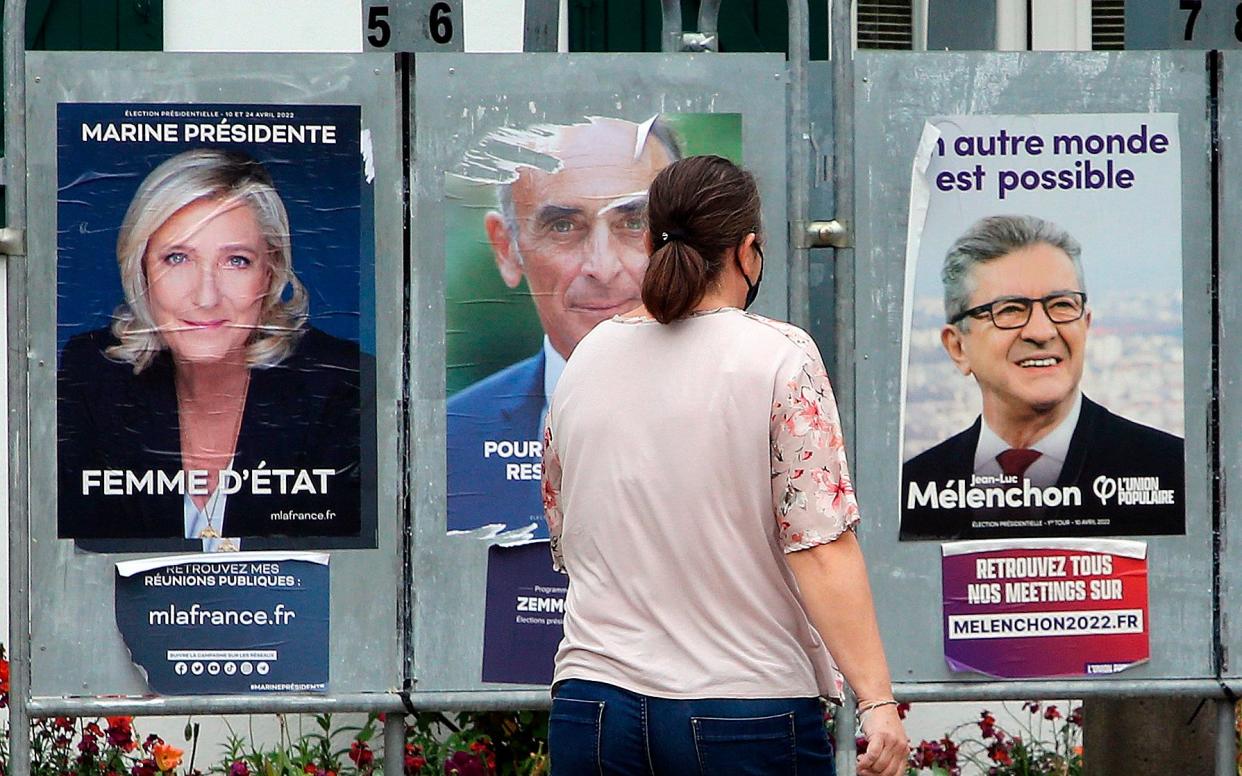Why a 72-year-old Eurosceptic could block Marine Le Pen’s party from power

The Palais Bourbon, where the National Assembly meets, is a grand and historic part of France’s civic infrastructure. When Jean-Luc Mélenchon pointedly removed his tie to enter its chamber one day in 2017, he was engaging in an act of symbolism that turned his attire itself into a political weapon.
The leader of La France Insoumise (LFI, or France Unbowed) declared at the time: “There were sans-culottes – now there will be sans-cravates”, referencing the trouser-wearing 18th-century revolutionaries whose disdain for breeches marked them out as different from the aristocracy.
Critics of the veteran Left-wing firebrand may have scoffed at all this, but it was classic Mélenchon: positioning himself as a man of the people, subversive, radical and anti-establishment. In an interview in 2010, he asked “Am I a populist? Yes I am!”
Today, the 72-year-old is the figurehead of a leftist alliance, the New Popular Front (NFP), which is now almost certainly the only political grouping capable of blocking the rise to power of France’s hard-Right National Rally (RN). In the first round of voting in the snap French election at the weekend, Marine Le Pen’s RN won 33 per cent of the popular vote, giving them a resounding victory. The NFP, which includes hard-Left, communists, socialists and greens, won 28 per cent. President Emmanuel Macron’s centrist Ensemble (Together) bloc trailed behind on 21 per cent.
With the second round of voting scheduled for this weekend, the tactical planning and bargaining to keep RN from gaining the absolute majority they would need to form a government is well underway among the centre and Left.

“This is what they call the horse-trading period,” says Andy Stafford, professor of French at the University of Leeds. “Mélenchon will have to keep both sides on board: the leftist parties he’s already got and, to defeat RN, he’ll have to get some of Macron’s MPs to stand down.”
The centre-Right and Left-wing parties have in the past already struck such deals to stand down candidates in the second round of elections, to ensure the anti-RN vote isn’t split.
Keeping the RN out of power this time, though, will depend in part on whether France’s centrists can bring themselves to get on board with Mélenchon, a man who has been dubbed France’s Jeremy Corbyn.
So who is the divisive Left-wing figure with whom centrists and moderate Right-wingers might have to form an accommodation if France is to avoid its first hard-Right government since the Second World War?
Born in Tangiers in Morocco in 1951, the son of a postmaster father of Spanish descent and primary school teacher of Sicilian descent, Mélenchon moved to France in 1962. He later studied philosophy at the University of Franche-Comté in Besançon. Originally a Trotskyist, he joined the Socialist Party in 1976 and briefly served as a minister for vocational training in 2000.
He has described himself as a republican who believes in representative democracy and elections. “That is why I call for a citizens’ revolution through the ballot box,” he said in 2010.
By then he had decided the Socialists were the wrong vehicle for such a revolution, having left the party in 2008. It was hardly radical enough for a man whose positions on a range of social and geopolitical questions was markedly further to the Left, and in 2016 he founded LFI.
“Our country needs another voice on the Left,” he said when he left the Socialist Party. Few would dispute that since then he has made his heard.
“He’s taken some quite strong positions that are really very opposed to the centre and the centre-Left,” says Michael Kelly, emeritus professor of French at the University of Southampton. “[He’s been] very critical of the European Union, which he regards largely as a rich man’s club, and very outspoken about the drift towards globalisation, neoliberalism and so on.
“He’s had some opposition to the consensus over Ukraine. He supported the takeover of Crimea [by Russia], though he did come out against Putin in 2022 for invading Ukraine. He’s also campaigned for taking France out of Nato, which he sees as an arm of American imperialism.”
A strong speaker and rhetorician, he has skilfully mobilised the youth vote on social media, boasting more than a million YouTube subscribers.
Just as in Britain when former Labour leader Corbyn enjoyed a surge in support several years ago, especially among the young (until he crashed out in 2019, heavily defeated by Boris Johnson’s Conservatives and mired in an anti-Semitism scandal surrounding his party), Mélenchon has attracted a sizeable following in France, especially among younger voters. In France’s 2022 presidential election, he won 22 per cent of the vote in the first round – not far behind Le Pen, on 23.2 per cent, and Macron on 27.9 per cent.

Now, as the NFP’s most high-profile politician, he can claim to have improved on his position. But whether the alliance he belongs to can hold and extend its appeal to those whose support will be needed to secure a victory in round two is very much in question.
“It was interesting to see him throwing his lot in with the NFP,” says Prof Kelly, who has written on French political history. “It slightly took me by surprise because I didn’t see him having that much sympathy with the more centrist parts of the Left.”
Suggestions of anti-Semitism have swirled around Mélenchon, who is critical of Israel, just as they did around Corbyn. Mélenchon has likewise strongly denied any anti-Semitic comments and vowed he has “nothing to do with racism...nothing to do with anti-Semitism”.
He’s also been criticised for appearing to support not only Vladimir Putin but also autocratic leaders in South America. Both Hugo Chavez, the late Venezuelan president, and China’s Mao Zedong have won his admiration.
Little of which seems to have deterred his supporters. “He has got a sort of caché among younger [voters],” says Prof Stafford. “He can deliver a good speech. I don’t know if I’d call him an intellectual, but he’s more of a strategist [than Corbyn was].”
But does being a strategist make him capable of the compromise that might be needed to form a political machine strong enough to stop RN? “I’d say yes, because he’s so far managed to keep the NFP together, which is quite a feat given they were at each other’s throats,” says Prof Stafford. “If he did become prime minister, would he plough ahead with his hard-Left [programme] or recognise he has to compromise? I think he’s capable of compromise, but it depends over what. Some things, yes, some things, no. He is quite a maverick. A bit unpredictable.”
Whether France will make him prime minister remains to be seen. If the choice is one between him and Le Pen, some commentators think it might swing his way.

“It’s all to play for,” says Prof Kelly. “If he can trim his sails a bit to appeal to the republican spirit right through into the centre, then there’s a chance, because there is a tradition in France of voting against the [hard-Right] and in endless elections people have voted for whoever wasn’t Le Pen.”
With Le Pen having made a concerted effort to broaden her party’s appeal and convince those of a more moderate persuasion to vote for her, it’s far from assured she’ll be similarly defeated this time.
Moderates who want to keep her out at all costs will have to make their peace with the man described by his former socialist ally Francois Hollande as “the problem”.


